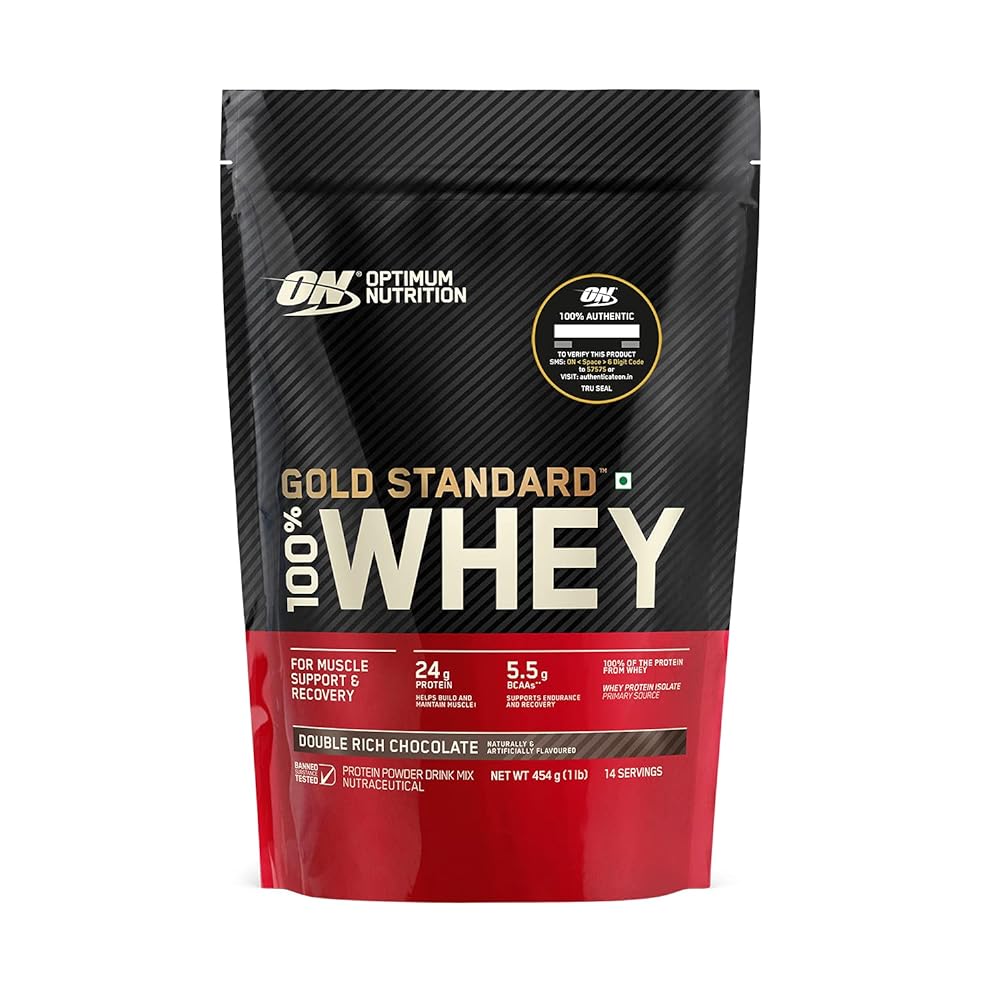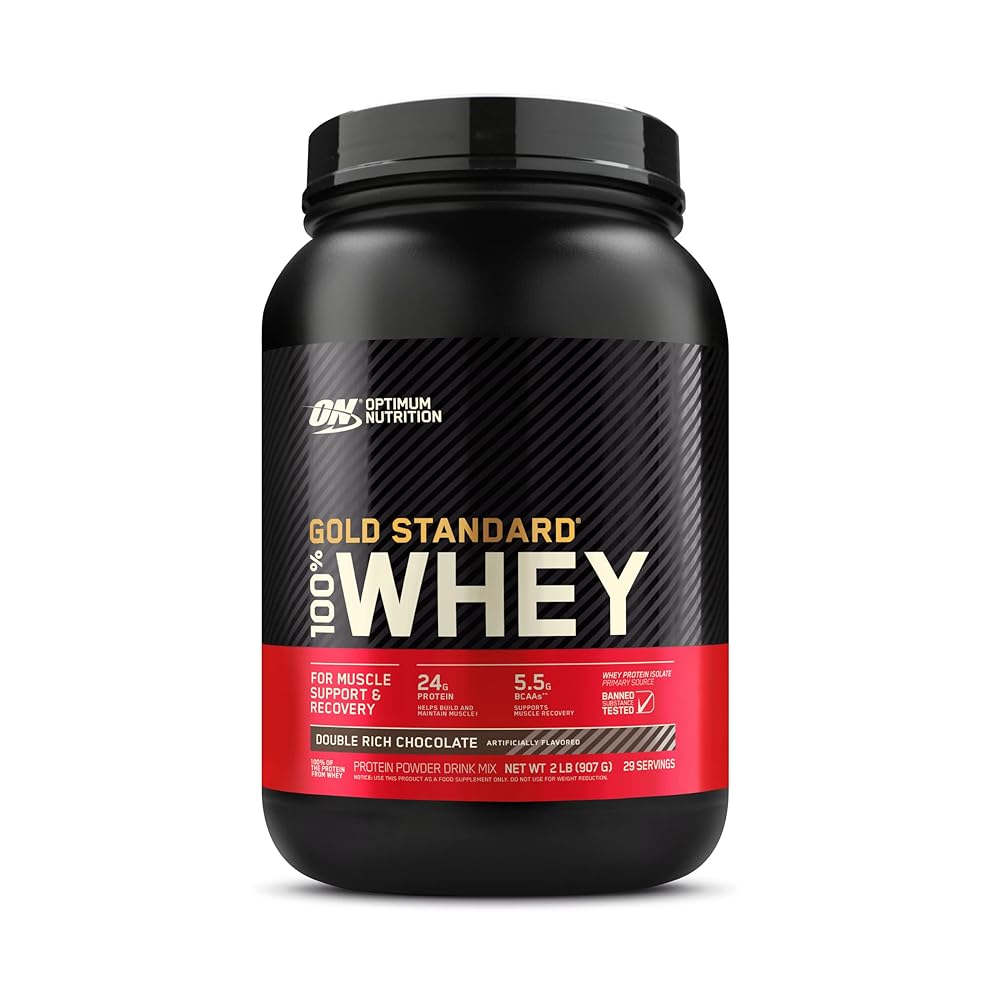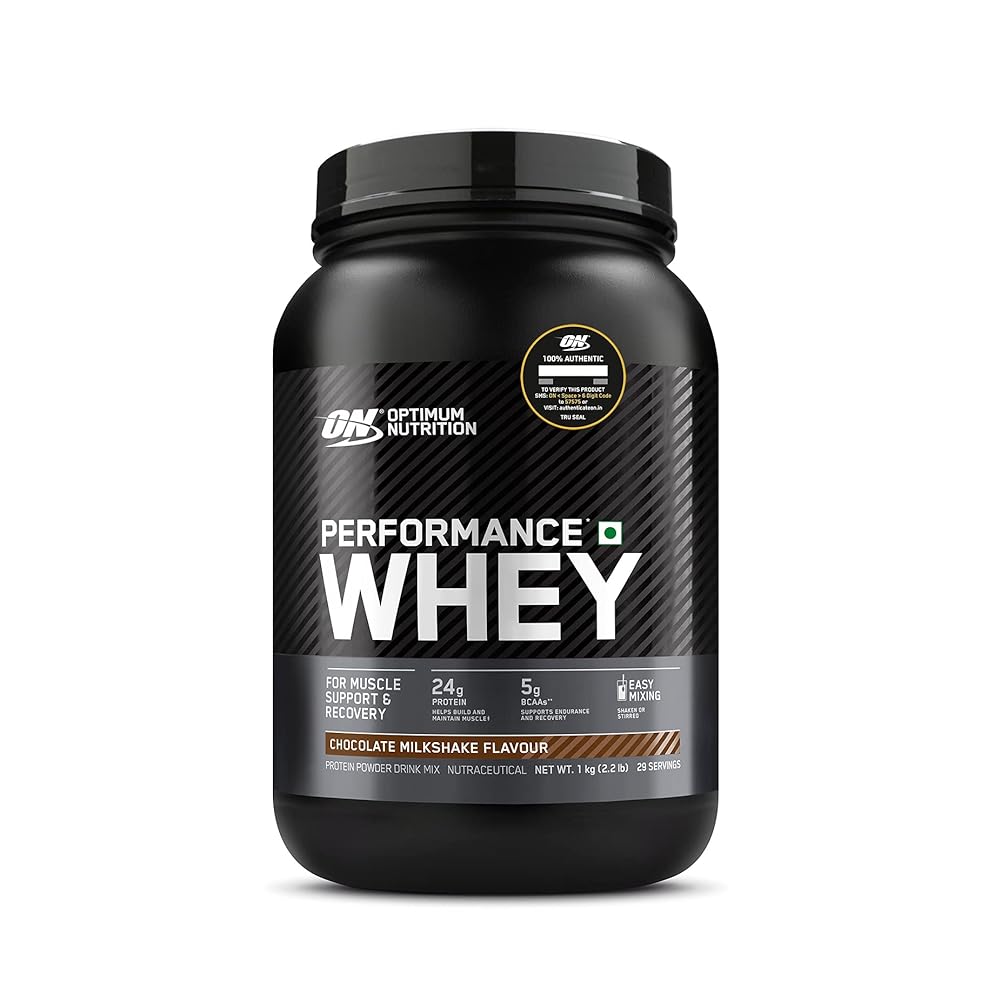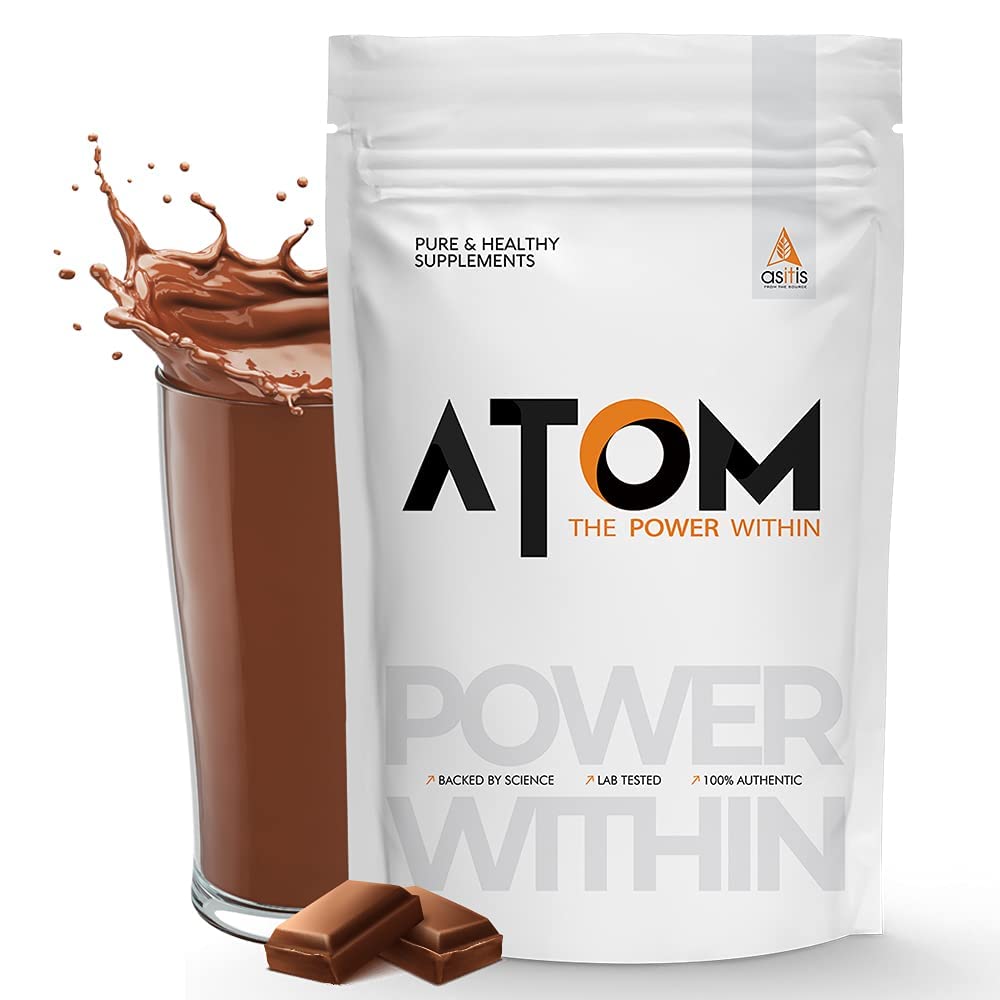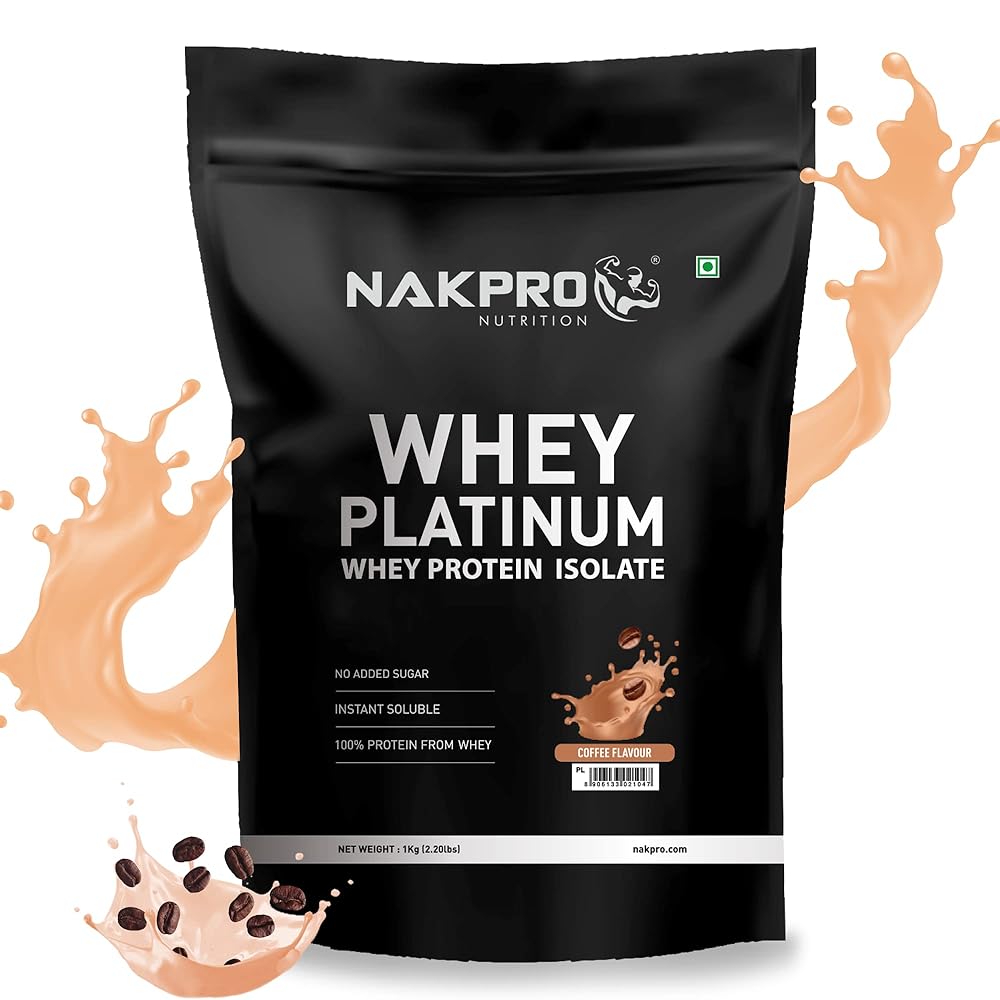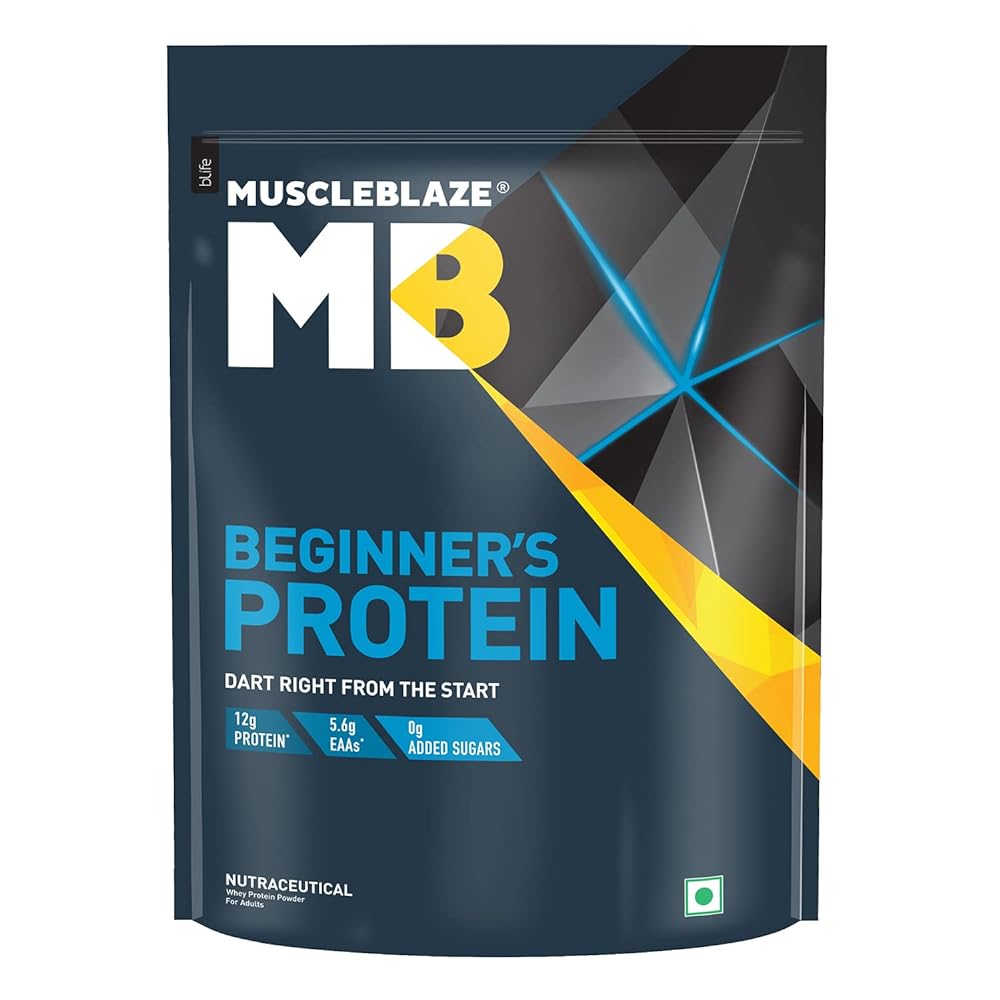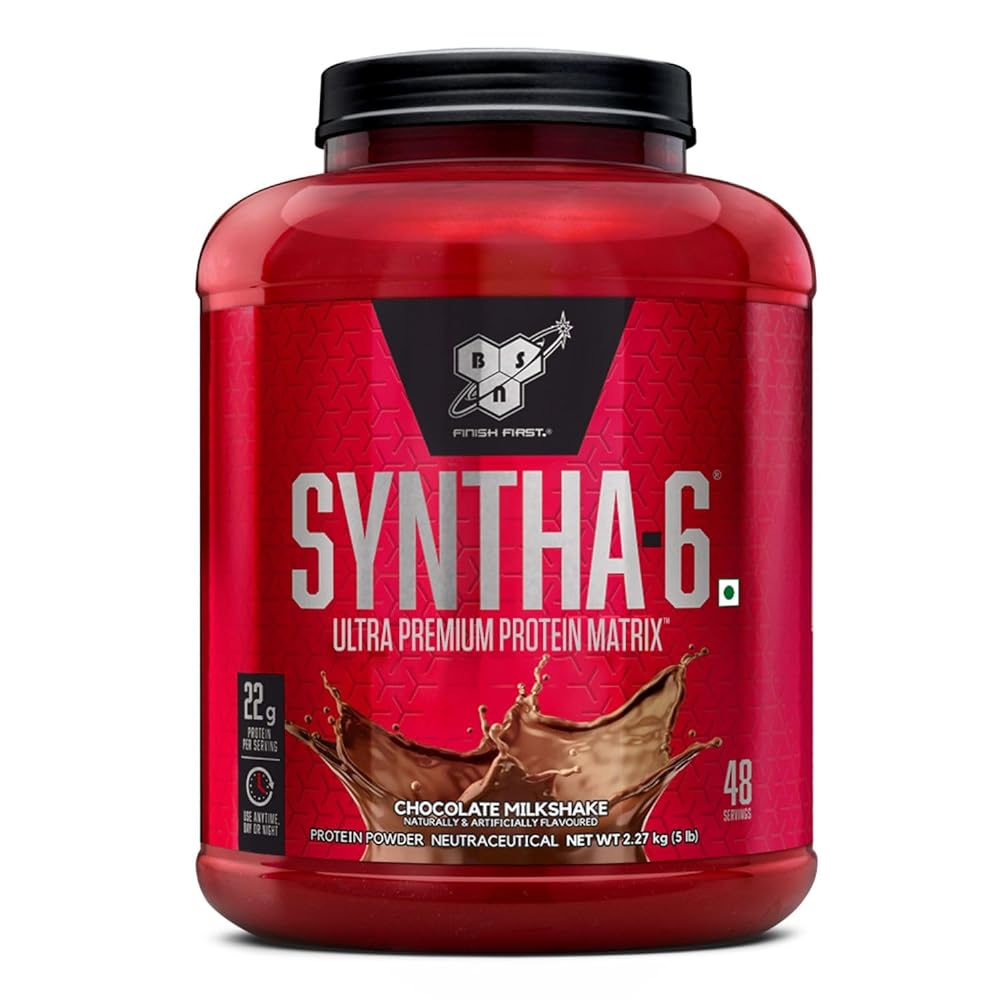Introduction
In the world of fitness and nutrition, where the quest for the perfect protein supplement is a journey undertaken by many. As a registered dietitian with a passion for helping individuals achieve their health goals, I understand the importance of finding the right fuel for your body. In this article, we embark on a comprehensive exploration of the “Best Protein Powder Supplements” available in the Indian market today.
In the bustling landscape of fitness products, protein powders stand as pillars of strength, aiding muscle recovery, supporting weight management, and promoting overall well-being. The shelves are stocked with an array of options, each claiming to be the ideal solution. But fear not, as we navigate through the protein-packed universe, unraveling the mysteries of whey, casein, pea, hemp, and other protein sources.
Whether you’re a seasoned fitness enthusiast or just beginning your wellness journey, the sheer variety of protein supplements can be overwhelming. Join me as we break down the essential factors to consider when choosing the right protein powder for your individual needs. Together, let’s sift through the marketing jargons and uncover the potential candidates that will truly elevate your nutritional game. Get ready to make informed choices that align with your fitness goals and contribute to a healthier, stronger you!

Our pick of the 7 best Protein Supplement of 2024 in India
Zotezo Score | Best Protein Powder | Lowest Price |
|---|---|---|
|
B+ |
||
|
B+ |
||
|
B |
||
|
C+ |
||
|
C+ |
||
|
C+ |
||
|
C+ |
Let's take a deep dive into these 7 best Protein Powder in India
Best Overall Protein Powder in India
Manufactured for Optimum Nutrition, Inc. by Tirupati Lifesciences
B+
Zotezo review
The Optimum Nutrition (ON) Gold Standard 100% Whey Protein Powder in Double Rich Chocolate offers a high-quality blend of protein sources, great taste, and versatility. However, some users may find it overpriced for the quantity and effectiveness on the body may vary.
Product details
Benefits of ON Gold Standard Whey – 1 lb
Drawbacks
Manufactured for Optimum Nutrition Inc. by Tirupati Wellness
B+
Zotezo review
The Optimum Nutrition (ON) Gold Standard 100% Whey protein powder offers a high-quality blend of protein sources that support lean muscle mass with 24g of protein per serving, including whey protein isolates and 5 grams of BCAAs. While the product may be considered slightly pricier by some customers and discount options are not always readily available, its delicious flavor options, easy mixability, and versatile uses make it a reliable choice for muscle support and recovery.
Product details
Benefits of ON Gold Standard Whey Protein &#...
Weaknesses
Manufactured for Optimum Nutrition, Inc by Tirupati Wellness Pvt. Ltd., Paonta Sahib, India
B
Zotezo review
The OPTIMUM NUTRITION Performance Whey Protein Powder Blend with Isolate offers a high-quality protein option with 24g per serving, 5g of BCAAs, and a blend of ultra-filtered whey. It is praised for its great taste, effectiveness in muscle gains, and easy digestion, though some users may find the chocolate flavor too sweet and the price slightly higher than alternatives.
Product details
Benefits of OPTIMUM NUTRITION Whey Protein C...
Disadvantages
Medizen Labs Private Limited, Bangalore
C+
Zotezo review
The AS-IT-IS ATOM Whey Protein 1kg in Double Rich Chocolate flavor is a high-quality product with 27g of protein per serving. It is USA Labdoor Certified, contains Isolate & Concentrate blend, and includes Digestive Enzymes for better absorption. Users appreciate its convenient packaging and smooth dissolution in water, although some may not enjoy the banana flavor. However, it lacks organic or non-GMO certification.
Product details
Benefits of AS-IT-IS ATOM Whey Protein 1kg
Negatives
Nakpro Nutrition
C+
Zotezo review
The NAKPRO Platinum Whey Protein Isolate in Coffee flavor offers a delicious taste, enhanced gym performance, and excellent value for money. Despite some reported cons such as hair fall issues and occasional packaging defects, the product’s high protein content, BCAA, easy mixing, low carbs, and digestibility make it a solid choice for fitness enthusiasts.
Product details
Benefits of NAKPRO Platinum Whey Protein Iso...
Cons
Sapiens Labs
C+
Zotezo review
The MuscleBlaze Beginner’s Whey Protein offers a delicious chocolate-flavored protein supplement with 12g of protein per serving, ideal for beginners looking to improve muscle recovery and strength. However, it contains sucralose as an artificial sweetener, which may pose health risks with continuous consumption.
Product details
Benefits of MuscleBlaze Beginner’s Whe...
Drawbacks
Bio-Engineered Supplements and Nutrition, Inc., 3500 Lacey Road, Suite 1200, Downers Grove, IL 60522
C+
Zotezo review
The BSN Syntha 6 Protein Powder in Chocolate Milkshake flavor offers a delicious way to boost protein intake with its premium protein matrix, ideal for pre-workout use and muscle recovery. While some users may find the carb content slightly higher and the product may expire within a month, its blend of fast and slow digesting proteins and vegetarian-friendly nature make it a solid choice for those seeking a versatile protein supplement.
Product details
Benefits of BSN Syntha 6 Protein Powder R...
Weaknesses
Various types of protein
In the vast landscape of protein powders, there’s a diverse array of options catering to different dietary needs and fitness goals. Let’s delve into the world of various protein powders, each with its unique characteristics and benefits.
Whey Protein:
First up on our protein journey is the reigning champion, whey protein. Derived from milk during the cheese-making process, whey is a complete protein containing all essential amino acids. Its rapid absorption makes it a favorite post-workout choice, swiftly replenishing amino acid levels in the bloodstream. Whey protein isolate, with higher protein content and lower lactose, suits those with lactose sensitivity. On the other hand, whey protein concentrate retains more of the beneficial nutrients found in whole whey.
Casein Protein:
Often considered the yin to whey’s yang, casein is another milk-derived protein. What sets it apart is its slower digestion rate, providing a steady release of amino acids over an extended period. This makes casein an ideal option for a nighttime protein boost, fostering muscle recovery during the overnight fasting period. While not as rapidly absorbed as whey, casein’s sustained release can be an advantage in certain scenarios, such as prolonged periods without food.
Pea Protein:
For our plant-based enthusiasts, pea protein steps into the spotlight. Extracted from yellow peas, this protein source boasts a high digestibility rate and a complete amino acid profile. Its allergen-friendly nature makes it an excellent option for those with dairy or soy sensitivities. Pea protein is often seen as a versatile choice, suitable for both muscle building and weight management. Its satiating effect can also aid in appetite control, making it a valuable addition to weight loss regimens.
Hemp Protein:
From the heart of hemp seeds comes hemp protein, a plant-based powerhouse. Rich in omega-3 fatty acids and fiber, hemp protein offers more than just muscle support. It provides a holistic nutritional boost, promoting heart health and aiding digestion. While it may not match the protein content of some animal-based options, the combination of essential nutrients makes hemp a valuable addition for those seeking a well-rounded approach to nutrition.
Rice Protein:
Derived from brown rice, this protein source is a gluten-free alternative suitable for various dietary preferences. While rice protein may not be as high in certain essential amino acids as whey or casein, it can still contribute to muscle growth and repair. Its hypoallergenic nature and easy digestibility make it an excellent choice for individuals with specific dietary restrictions.
Soy Protein:
Soy protein, derived from soybeans, has long been a staple in the plant-based protein realm. As a complete protein, soy provides all essential amino acids, making it a solid option for those following a vegetarian or vegan diet. Beyond its muscle-building benefits, soy protein contains compounds known as phytoestrogens, which may offer additional health advantages. However, individuals with soy allergies or concerns about hormonal effects should exercise caution and consult with a healthcare professional.
Collagen Protein:
Venturing beyond the traditional sources, collagen protein has gained popularity for its unique properties. Primarily found in connective tissues, collagen is the main structural protein in the body, contributing to skin, hair, and joint health. While not a complete protein in terms of amino acid profile, collagen can still play a valuable role in overall wellness, particularly for those aiming to support joint function and promote healthy skin.
Egg White Protein:
Harnessing the power of egg whites, this protein source provides a complete amino acid profile. Egg white protein is fat-free and low in carbohydrates, making it a lean option for those focused on specific macronutrient ratios. Its versatility allows it to be seamlessly integrated into various recipes, from shakes to baked goods. While egg white protein may not be suitable for those with egg allergies, it remains a quality choice for individuals seeking a highly bioavailable protein source.
Blend of Proteins:
As the saying goes, sometimes the whole is greater than the sum of its parts. Protein blends combine different protein sources to create a comprehensive profile that maximizes the benefits of each. For example, a blend of whey and casein can offer both rapid and sustained amino acid release, optimizing muscle support throughout the day. These blends cater to a broader spectrum of needs and preferences, providing a well-rounded solution for individuals with varied fitness goals.
When is the best time to take protein?
Timing is everything when it comes to optimizing the benefits of your protein powder supplementation. The best time to take protein hinges on your individual goals, lifestyle, and activity level. Let’s break down the ideal moments to incorporate protein into your day, tailored to specific needs and target audiences.
1. Post-Workout Window:
For the fitness enthusiasts and gym aficionados, the post-workout period is hailed as the golden hour for protein consumption. During exercise, muscle fibers undergo microscopic damage, and the post-exercise period, often referred to as the “anabolic window,” is when your body is primed to repair and rebuild. Consuming protein within 30 to 60 minutes post-exercise provides the necessary amino acids to kickstart muscle protein synthesis and accelerate recovery. A whey protein shake, with its rapid absorption rate, is particularly beneficial during this timeframe.
2. Pre-Workout Fuel:
While the post-workout period is crucial, don’t overlook the importance of pre-workout nutrition. Having a protein-rich snack or shake about 30 to 60 minutes before your workout can provide a sustained release of amino acids during exercise. This helps prevent muscle breakdown and sets the stage for optimal muscle preservation and growth. Consider a protein powder blend that includes both fast-acting and slow-digesting proteins for sustained energy.
3. Throughout the Day for Meal Balancing:
Protein isn’t reserved exclusively for the gym enthusiasts. Whether you’re an office professional, a busy parent, or someone juggling multiple responsibilities, incorporating protein into your meals and snacks throughout the day can have a profound impact. Including a protein shake or protein-rich snack in between meals helps maintain a steady supply of amino acids in your bloodstream, promoting feelings of fullness and preventing energy dips. This is especially beneficial for weight management and maintaining muscle mass.
4. Bedtime Snack for Overnight Recovery:
For those aiming to maximize overnight recovery, a protein-rich bedtime snack can be a strategic move. Casein protein, with its slower digestion rate, provides a sustained release of amino acids throughout the night, supporting muscle repair during the extended fasting period. Consider a casein protein shake or snack before bedtime to ensure your muscles receive a continuous supply of nutrients while you sleep.
5. Aging Adults:
As we age, preserving muscle mass becomes paramount for overall health and functionality. Older adults can benefit from spreading their protein intake evenly throughout the day. Including protein-rich foods or protein powder in each meal helps provide a steady stream of amino acids, supporting muscle health and preventing age-related muscle loss. This approach is particularly valuable for older individuals looking to maintain strength and independence.
How We Tested: Unveiling the Best Protein Powders for Your Fitness Journey
Embarking on a quest to find the best protein powder isn’t just about scooping, blending, and sipping – it’s a nuanced exploration into the realms of taste, texture, nutrition, and purity. Our team of dietitian experts and fitness enthusiasts took on the Herculean task of dissecting the protein powder market to bring you the definitive guide on the best options available. Here’s a behind-the-scenes look at our rigorous testing process.
Selection Criteria: The Protein Pinnacle
Before we even set foot in the testing arena, we meticulously combed through the expansive protein powder landscape. Our criteria were as stringent as a personal trainer’s regimen. We only considered powders that stood tall on the pillars of purity, digestibility, and nutritional value. No fillers, no fluff – just unadulterated protein powerhouses.
Round 1: Taste Test Extravaganza
The taste test phase was a carnival of flavors, aromas, and textures. Armed with shaker bottles and taste buds ready for a workout, we mixed and sampled an array of protein powders. Vanilla, chocolate, strawberry – we left no stone unturned in the quest for the perfect palate-pleaser.
Each powder faced the scrutiny of a diverse panel, comprising not only fitness aficionados but also individuals with varying dietary preferences. Vegan, keto, paleo – we made sure our panel represented the kaleidoscope of dietary needs. Our goal was to find a protein powder that not only flexed its muscle in terms of protein content but also danced on the taste buds, leaving a lasting, positive impression.
Round 2: Nutritional Analysis Blitz
Once the taste champions emerged victorious, it was time to put on our dietitian hats and delve into the nutritional nitty-gritty. We analyzed macronutrient profiles, scrutinized amino acid compositions, and calculated the protein-to-calorie ratio with a precision that would make a mathematician nod in approval.
The aim was to identify powders that not only delivered a protein punch but did so without loading you up on unnecessary sugars, fats, or mysterious additives. We understand that your fitness journey is a delicate dance of fuel and function, and we wanted to ensure that the protein powders we recommend align seamlessly with your nutritional goals.
Round 3: Digestibility Marathon
What good is a protein powder if it leaves you feeling bloated or wreaks havoc on your digestive system? To answer this question, we subjected each contender to the digestibility marathon. Our team sampled and observed, noting any signs of discomfort or digestive distress.
We understand that no two bodies are the same, and what works for one might not work for another. That’s why our testing panel included individuals with different dietary restrictions, sensitivities, and even those with sensitive stomachs. The protein powders that emerged unscathed from this digestive crucible proved not only their nutritional prowess but also their digestive amiability.
Round 4: Ingredient Transparency Inspection
A crucial facet of our testing process was an in-depth examination of ingredient transparency. We believe that you deserve to know exactly what you’re putting into your body. We combed through labels with the precision of a detective on a case, looking for hidden additives, artificial sweeteners, or questionable preservatives.
The protein powders that earned our nod were the ones that didn’t shy away from baring it all on their labels. We salute the brands that value transparency, laying out their ingredients like an open book. After all, your fitness journey is built on a foundation of trust, and we made sure to highlight the powders that earned it.
Round 5: Brand Reputation Check
In the ever-expanding universe of protein powders, brand reputation is the North Star guiding your supplement choices. We delved into the reputation of each brand, assessing their commitment to quality, customer reviews, and overall trustworthiness. The protein powders that made it to the final list weren’t just nutritional powerhouses – they were backed by brands with a proven track record of integrity and customer satisfaction.
Bonus Round: Mixability and Versatility
To wrap up our testing journey, we delved into the often-overlooked aspects of mixability and versatility. After all, a protein powder that clumps up or refuses to play well with your favorite smoothie ingredients is like a workout partner who cancels every gym session. We mixed, blended, and shook our protein powders with an assortment of liquids and recipes to ensure they seamlessly integrated into your culinary and fitness repertoire.
The powders that effortlessly blended into a creamy, lump-free concoction and adapted to a variety of recipes emerged victorious in this bonus round. Because your protein powder should not only support your fitness goals but also elevate your culinary experience.
The Cream of the Protein Crop
After weeks of blending, sipping, scrutinizing labels, and consulting with our taste buds and digestive systems, we present to you the cream of the protein crop. Our recommendations aren’t just based on protein content – they’re a culmination of taste, nutrition, digestibility, transparency, and brand reliability.
Tips for choosing the right Protein Supplement for you
Let’s delve into a comprehensive buyer’s guide to demystify the world of protein supplements, ensuring that your selection aligns seamlessly with your goals and values.
1. Understanding Protein Sources:
The foundation of any protein powder lies in its source, and your choice should align with your dietary preferences and needs. Whey protein, sourced from milk, reigns supreme in popularity, especially for its complete amino acid profile. If you’re lactose intolerant or follow a plant-based diet, pea protein, hemp protein, or soy protein might be more suitable alternatives. Consider your dietary restrictions and ethical considerations when choosing the source that best fits your lifestyle.
2. Certifications Matter:
In the Wild West of the supplement world, certifications act as beacons of trustworthiness. Look for products that bear the stamp of approval from independent third-party organizations. The NSF Certified for Sport and Informed-Choice labels are particularly noteworthy, ensuring that what’s on the label is truly in the product. These certifications guarantee not only the quality of the ingredients but also the absence of contaminants and banned substances, crucial if you’re an athlete subject to anti-doping regulations.
3. Scrutinizing Ingredient Lists:
Turn that bottle around and let’s dissect the ingredient list. Opt for protein powders with minimal, recognizable ingredients. Beware of added sugars, artificial sweeteners, and excessive fillers that can compromise the nutritional integrity of your protein supplement. A touch of sweetness is acceptable, but an overload of artificial flavors and sweeteners might leave you questioning the purity of your chosen product. For those with dietary sensitivities, be vigilant about potential allergens and additives that may not align with your health goals.
4. Checking for Harmful Additives:
While we’re on the topic of ingredients, let’s talk about harmful additives. Some protein powders sneak in unnecessary additives, preservatives, and artificial colors that do more harm than good. Scan the label for ingredients like carrageenan, a thickening agent that has been associated with gastrointestinal issues, and artificial sweeteners like aspartame, which can be a migraine trigger for some individuals. Choose a protein powder that prioritizes purity, steering clear of unnecessary and potentially harmful additives.
5. Assessing Nutritional Content:
Not all protein powders are created equal, and the nutritional content can vary widely. Beyond just protein content, examine the overall macronutrient profile. If you’re seeking a lean option, look for powders with minimal fat and carbohydrates. Conversely, if you’re using protein as a meal replacement or to support muscle gain, a more balanced macronutrient profile may be beneficial. Pay attention to the calorie count as well, especially if you’re incorporating protein powder into a calorie-controlled diet.
6. Protein Powder and Sports:
For the athletes and fitness enthusiasts among us, the role of protein powder extends beyond a mere supplement – it’s a crucial ally in performance and recovery. Opt for protein powders with the NSF Certified for Sport or Informed-Choice certification, ensuring that your choice undergoes rigorous testing for contaminants and banned substances. Look for products with a well-balanced amino acid profile, particularly those rich in leucine, an amino acid crucial for muscle protein synthesis. Whether you’re a dedicated athlete or a weekend warrior, choosing a high-quality protein powder can contribute significantly to your training and recovery efforts.
7. Considering Allergens:
For those navigating the maze of dietary restrictions and allergies, scrutinizing allergen information is non-negotiable. If you’re lactose intolerant or allergic to dairy, opt for lactose-free whey protein isolate or explore plant-based alternatives like pea, hemp, or rice protein. Similarly, if you have soy allergies, steer clear of soy protein isolates. A meticulous examination of the allergen information ensures that your protein powder not only supports your health goals but does so without triggering unwanted reactions.
8. Evaluating Digestibility:
What good is a protein powder if your body struggles to digest it? Consider the digestibility of the protein source, especially if you’ve experienced digestive discomfort with certain foods in the past. Whey protein is renowned for its quick absorption, while plant-based options like pea protein may be gentler on the digestive system. If you’re prone to digestive issues, a protein powder with added digestive enzymes can be a game-changer, enhancing nutrient absorption and minimizing discomfort.
9. Personalizing Your Protein Goals:
One size does not fit all in the world of protein supplementation. Your goals, whether they involve muscle gain, weight management, or overall wellness, should guide your choice of protein powder. If you’re looking to support muscle growth and recovery, a protein powder rich in branched-chain amino acids (BCAAs) like leucine is paramount. For weight management, consider a protein powder with a well-balanced macronutrient profile to support satiety. Tailor your choice to your unique needs, and remember that the best protein powder is the one that aligns with your personal goals and lifestyle.
10. Price vs. Quality:
While it’s tempting to opt for the most budget-friendly option, consider protein powder as an investment in your health and fitness journey. Quality often comes with a price, and skimping on the quality of your protein supplement may compromise the results you seek. Strike a balance between affordability and quality, and don’t be swayed solely by flashy marketing or discounts. Your body deserves the best, and investing in a reputable product ensures that you reap the maximum benefits from your protein powder.
Products listed here are carefully reviewed and tested by our expert authors and reviewers. If you buy through links on this page, we may earn a small commission. Here’s our editorial process.
How we reviewed these products
Benefits of using Protein Supplement
Embarking on the journey of exploring the best protein powder supplements opens a gateway to a plethora of benefits that extend far beyond the gym. Let’s unravel the myriad advantages that these protein-packed wonders bring to the table.
1. Muscle Building and Repair:
At the forefront of protein powder benefits lies its unparalleled ability to support muscle building and repair. Proteins are the building blocks of muscle tissue, and incorporating a high-quality protein powder into your routine ensures that your muscles receive the essential amino acids required for growth and recovery. This makes protein powder a go-to companion for athletes, fitness enthusiasts, and those engaged in resistance training.
2. Convenient Protein Source:
In our fast-paced lives, convenience is a prized commodity. Protein powders offer a quick and easy way to boost your protein intake without the time-consuming preparation that often accompanies whole food sources. A scoop of protein powder mixed into a shake, smoothie, or even stirred into yogurt can deliver a protein punch on the go, making it a valuable asset for individuals with busy schedules.
3. Weight Management Support:
For those navigating the segment of weight management, protein powder emerges as a steadfast ally. Protein has a satiating effect, helping to curb cravings and promote a feeling of fullness. By incorporating protein powder into your meals or snacks, you can foster better appetite control, making it easier to adhere to a calorie-controlled diet and navigate the intricacies of weight loss or maintenance.
4. Enhanced Exercise Performance:
Fueling your body with the right nutrients is paramount for optimal exercise performance. Protein powder, especially when consumed around workouts, can provide a readily available source of amino acids, contributing to improved endurance and stamina. This is particularly beneficial for endurance athletes or those engaged in high-intensity training, where the demand for energy and muscle support is heightened.
5. Versatility in Nutrition:
The beauty of protein powders lies in their versatility. Whether you’re a fan of animal-based proteins like whey and casein or lean towards plant-based options such as pea, hemp, or soy, there’s a protein powder to suit every dietary preference. This versatility ensures that individuals following vegetarian, vegan, or specific allergen-free diets can still meet their protein needs effectively.
6. Support for Specialized Diets:
Protein powders can be a game-changer for individuals following specialized diets, such as ketogenic or low-carbohydrate regimens. Choosing a protein powder with minimal carbohydrates and fats allows for targeted macronutrient control, facilitating adherence to specific dietary goals without compromising protein intake.
7. Nutrient Boost for Vegetarians and Vegans:
For those who choose plant-based lifestyles, meeting protein requirements can sometimes be a challenge. Enter plant-based protein powders, offering a concentrated and convenient source of protein without the need for animal products. Pea protein, hemp protein, and soy protein, among others, cater to the nutritional needs of vegetarians and vegans, providing essential amino acids for muscle support and overall well-being.
8. Joint and Connective Tissue Support:
Beyond muscle-centric benefits, some protein powders, particularly those containing collagen, contribute to joint and connective tissue health. Collagen, a structural protein abundant in connective tissues, supports joint flexibility and skin elasticity. This makes collagen-containing protein powders an appealing choice for individuals seeking comprehensive health benefits beyond muscle support.
9. Blood Sugar Regulation:
Protein’s impact extends to blood sugar regulation, playing a role in moderating post-meal glucose levels. Including protein powder in meals or snacks can contribute to a balanced macronutrient profile, potentially blunting the post-meal rise in blood sugar levels. This is particularly relevant for individuals managing conditions like insulin resistance or type 2 diabetes.
10. Aging Gracefully with Protein:
As we age, maintaining muscle mass becomes increasingly crucial for overall health and functional independence. Protein powders, with their concentrated amino acid content, aid in preserving muscle mass and supporting healthy aging. This is particularly pertinent for older adults who may face challenges in meeting protein requirements through whole foods alone.
Side-effects of using Protein Powder
While protein powder can be a boon for many, it’s crucial to be aware of potential side effects that may arise, especially when consumed in excess or without consideration for individual needs. One common concern is digestive discomfort. Some individuals may experience bloating, gas, or mild stomach upset as their digestive system adjusts to the concentrated protein intake. To mitigate this, start with smaller servings and gradually increase as your body adapts.
Excessive protein consumption, whether through powders or whole foods, can strain the kidneys, particularly in individuals with pre-existing kidney conditions. It’s vital to stay within recommended daily protein intake levels and consult with a healthcare professional if you have concerns about kidney health. Additionally, dehydration can accompany higher protein intake, so ensure you’re maintaining adequate fluid levels to support kidney function.
For those with lactose intolerance, certain protein powders derived from dairy, like whey and casein, might pose challenges. Opting for lactose-free versions or exploring plant-based alternatives can be a solution. Soy protein, while a complete protein source, may contain compounds that mimic estrogen. While research on this topic is ongoing, individuals with hormone-sensitive conditions should exercise caution and consult with a healthcare provider.
Sweeteners and additives present in some protein powders can also be culprits for adverse reactions. Artificial sweeteners like aspartame and certain additives may trigger sensitivities in some individuals, leading to headaches or digestive issues. Reading ingredient labels diligently can help you avoid these potential pitfalls.
Lastly, consider the role of protein supplements within your overall diet. Relying too heavily on protein powders and neglecting whole food sources can result in nutritional imbalances. Protein-rich foods offer a spectrum of nutrients that supplements may lack.
Recommended Dosage of Protein Powder
Determining the optimal dosage of protein powder is akin to crafting a personalized recipe – it’s all about balancing individual needs, goals, and preferences. The recommended dosage of protein powder varies based on factors such as gender, age, activity level, and specific health objectives. Let’s break down the essentials to guide you toward finding the perfect protein prescription for your unique circumstances.
1. General Guidelines:
For the average adult, a general rule of thumb is to aim for 0.36 grams of protein per pound of body weight. This serves as a baseline to meet basic protein requirements. However, those engaged in regular physical activity, especially resistance training or endurance exercise, may benefit from a higher protein intake.
2. Protein Needs Based on Activity Level:
Individuals with sedentary lifestyles may find that their protein needs align with the general guideline. However, if you’re an active individual or an athlete, the protein game takes on a new dimension. To support muscle repair, recovery, and growth, consider increasing your protein intake to around 0.6 to 1.0 grams per pound of body weight. Athletes engaged in intense training may lean towards the higher end of this spectrum to optimize performance and mitigate muscle breakdown.
3. Gender and Protein Requirements:
While the general guidelines apply to both men and women, it’s worth noting that individual protein needs can vary. Factors such as muscle mass, hormonal differences, and metabolic rates play a role. Women, particularly those involved in resistance training or aiming for specific body composition goals, may find benefit in the higher range of protein intake. Tailor your protein dosage to your individual needs, and consider consulting with a dietitian or healthcare professional for personalized advice.
4. Age-Related Considerations:
As we age, the importance of protein in maintaining muscle mass and overall health becomes increasingly evident. Older adults may benefit from a slightly higher protein intake to support muscle preservation and prevent age-related muscle loss. Aim for protein levels closer to the upper end of the recommended range, ensuring that your protein powder serves as a valuable ally in the aging process.
5. Protein Intake for Weight Management:
If weight management is a key focus, protein powder can be a valuable tool. Protein’s satiating effect can aid in appetite control, making it easier to adhere to a calorie-controlled diet. Including protein powder in meals or snacks can contribute to a well-balanced macronutrient profile, supporting both weight loss and maintenance goals.
6. Targeted Protein Goals:
Consider your specific health and fitness objectives when determining your protein dosage. If you’re primarily using protein powder for muscle building and recovery, a higher intake may be beneficial. Conversely, if you’re incorporating protein powder as a convenient protein source in your overall diet, adjust your dosage to align with your broader nutritional goals.
How to consume Protein Powder
Incorporating the best protein powder supplements into your routine is like adding a secret ingredient to your health and fitness recipe. But how do you make the most of these nutritional powerhouses? Let’s explore the art of using protein powder with finesse, ensuring it becomes a seamless and effective part of your daily regimen.
1. Choose the Right Type:
First things first, selecting the right type of protein powder sets the stage for success. Whey protein is ideal for rapid absorption and post-workout recovery, while casein provides a slower release, perfect for sustained muscle support. Plant-based options like pea, hemp, or soy cater to diverse dietary preferences. Consider your goals, preferences, and any dietary restrictions when choosing the protein powder that suits you best.
2. Timing is Key:
The timing of your protein intake can influence its effectiveness. Post-workout shakes, typically featuring fast-digesting proteins like whey, are celebrated for kickstarting muscle recovery. A pre-workout protein boost, containing a blend of proteins for sustained release, can offer energy and muscle preservation during exercise. Spreading protein intake throughout the day ensures a continuous supply of amino acids, supporting muscle health and preventing energy slumps.
3. Dosage Delicacies:
Finding the sweet spot for your protein dosage is a balancing act. General guidelines recommend around 0.36 to 1.0 grams of protein per pound of body weight, but individual needs vary. Athletes and those engaged in intense training may lean towards the higher end, while sedentary individuals may find the lower range sufficient. Experiment with different dosages based on your response to protein supplementation, and consider consulting with a healthcare professional or dietitian for personalized advice.
4. Shake, Blend, or Stir:
The beauty of protein powder lies in its versatility. Mix it up—literally. Shakes, smoothies, and even stirred into yogurt or oatmeal—the possibilities are endless. Get creative with your protein recipes to keep things exciting. Blend your favorite fruits, greens, and a scoop of protein for a delicious and nutrient-packed smoothie. The key is to make your protein routine enjoyable, ensuring that you look forward to your daily dose.
5. Integrate into Meals:
Think beyond the shaker bottle. Protein powder can seamlessly integrate into your meals. Add a scoop to pancake or muffin batter, mix it into your morning oats, or even incorporate it into savory dishes like soups or sauces. The adaptability of protein powder makes it a versatile ingredient that can enhance the nutritional profile of a variety of dishes.
6. Stay Hydrated:
Protein metabolism requires water, so staying hydrated is crucial. Ensure you’re drinking enough water throughout the day to support digestion and nutrient absorption. Whether you prefer your protein in liquid form or mixed into solid foods, having ample water on hand enhances the overall effectiveness of your protein supplementation.
Understand the who, what & why behind your favourite products
Brand Values | Product Philosophy | Product USPs
Read brand stories, their raison-d'etre, and understand what drives them to caringly create the highest quality products for your well-being.
Brand stories
Frequently asked questions on Protein Supplement
1. How much protein powder should I consume?
2. Can I use protein powder for weight loss?
3. Is it safe for teenagers or older adults to use protein powder?
4. Can I use protein powder if I'm lactose intolerant?
Expert reviews you can rely upon
Expert Insights | Product Reviews | Connect with Experts
Gain valuable insights and read unbiased product reviews by subject matter Experts on Zotezo, the ultimate trust commerce platform, that empowers millions globally to make informed decisions for their wellbeing.
Expert Advisory
Conclusion
Whether you’re an athlete striving for peak performance, someone navigating weight management, or an individual seeking a convenient source of nutrition, the world of protein powders has a solution for you. From the rapid absorption of whey to the sustained release of casein, and the diverse plant-based options catering to various lifestyles, the choices are as varied as the individuals embracing them.
As a dietitian, I encourage you to approach the selection of protein powder with the same discernment you apply to your dietary choices. Consider your unique needs, taste preferences, and dietary restrictions. Experiment with different types and flavors to find the one that seamlessly integrates into your routine. Whether you blend it into a post-workout shake, stir it into your morning oats, or bake it into your favorite recipes, let protein powder be a versatile ally in your journey to optimal health. Remember, the best protein powder is the one that aligns with your individuality, supporting you on the path to a healthier, stronger, and more vibrant you.

